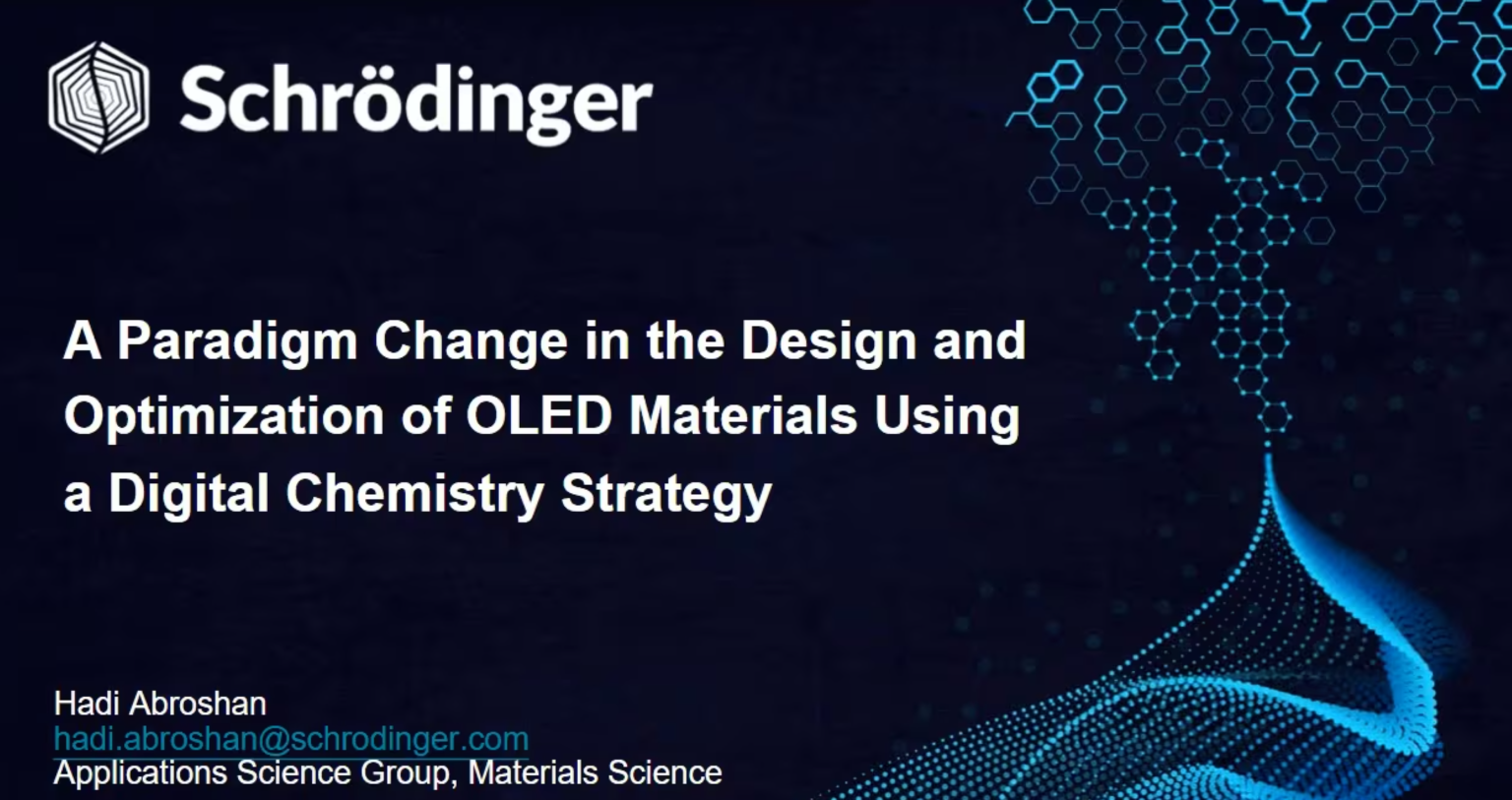
JUN 22, 2022
A paradigm change in the design and optimization of OLED materials using a digital chemistry strategy
Speaker
Hadi Abroshan
Senior Scientist
Abstract
Recent developments in device architecture of organic light emitting diodes (OLEDs) have opened a new avenue for innovative technologies to fabricate ultra-thin, flexible, foldable, and transparent displays. However, commercial advancement of OLEDs with higher performance requires continued discovery and development of novel optoelectronic materials. Given the enormous chemical design space available, traditional approaches based on chemical intuition and trial-and-error experimentation are expensive, time-consuming, and most often ineffective. A paradigm change in materials design and development is required to realize next-generation OLEDs.
In this webinar, we will present the impact of in silico technologies for systematic design, development, and selection of organic optoelectronic materials. Both physics- and machine learning-based approaches (e.g. active learning, goal-directed generative model) will be discussed. These computational approaches enable development of a better understanding of structure-function relationships from a molecular and morphological perspective. We also demonstrate accelerated OLED materials analysis through the combination of atomic-scale simulations with machine learning to pre-screen novel materials for high performance before laborious synthesis and device fabrication.
Key Topics Covered:
- Understand the predictive capabilities of physics-based modeling in optoelectronics
- Explore new machine learning capabilities for high-throughput screening to accelerate OLED materials discovery